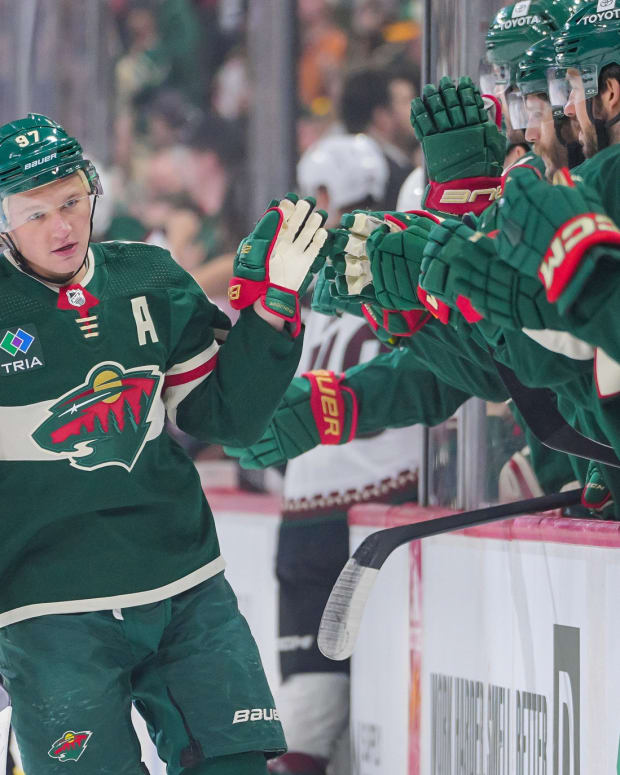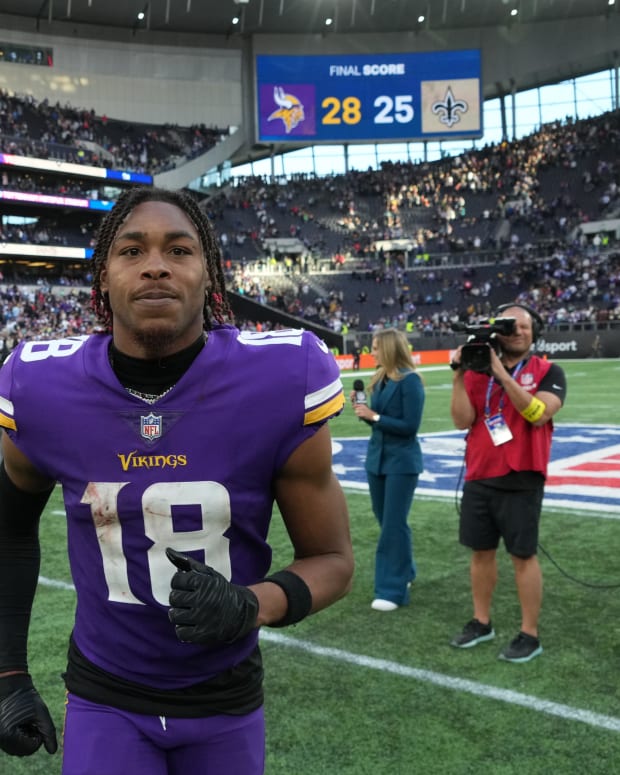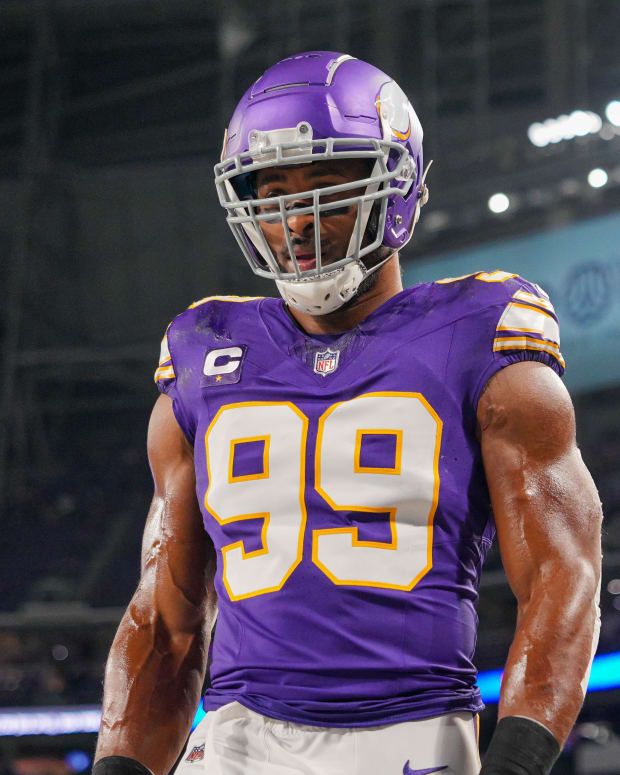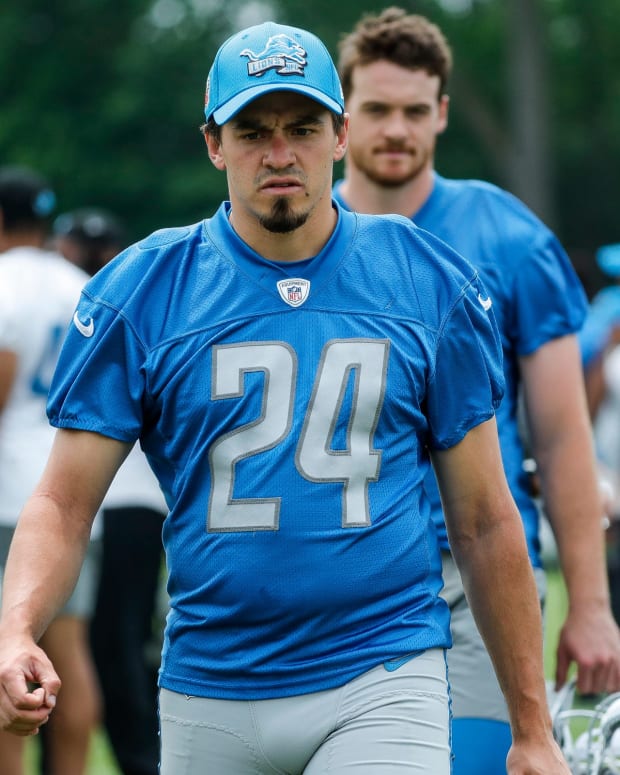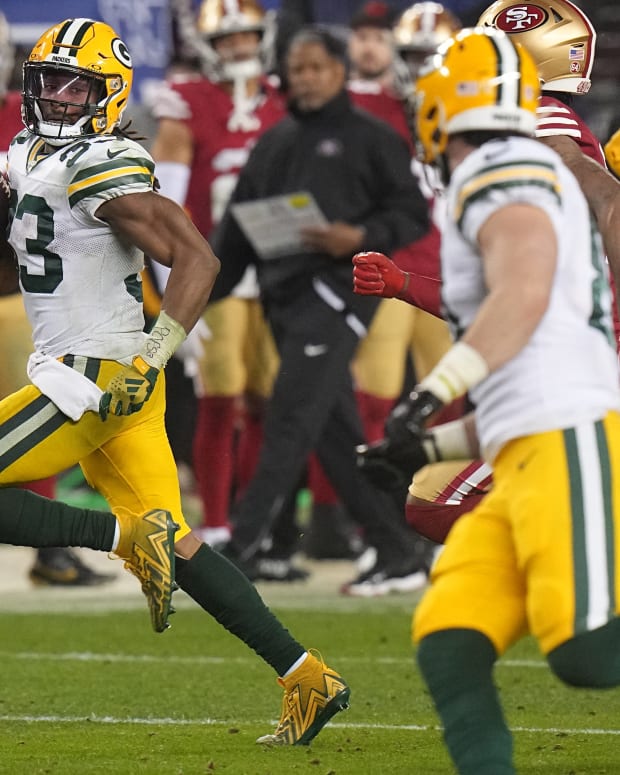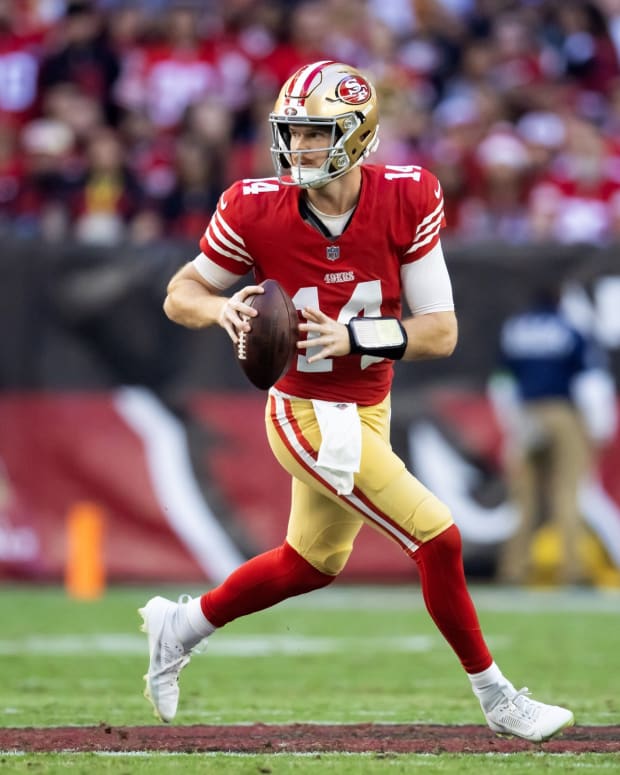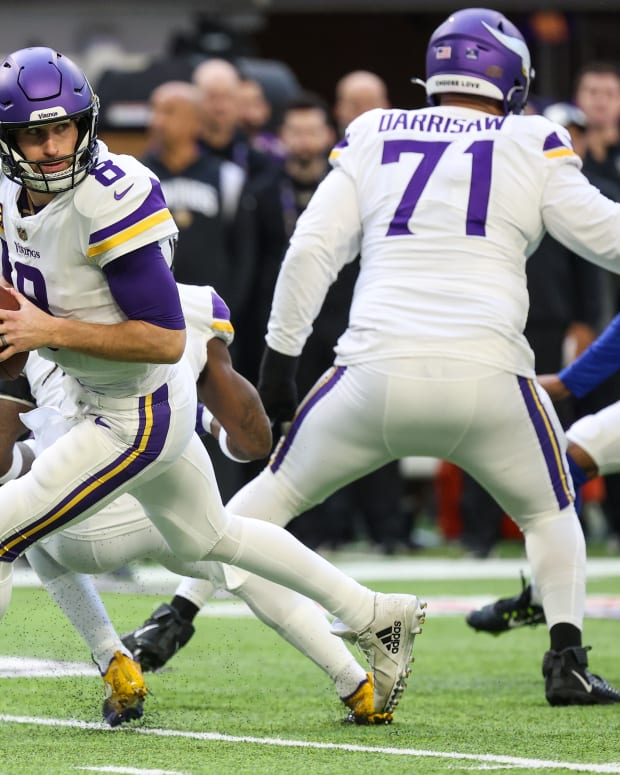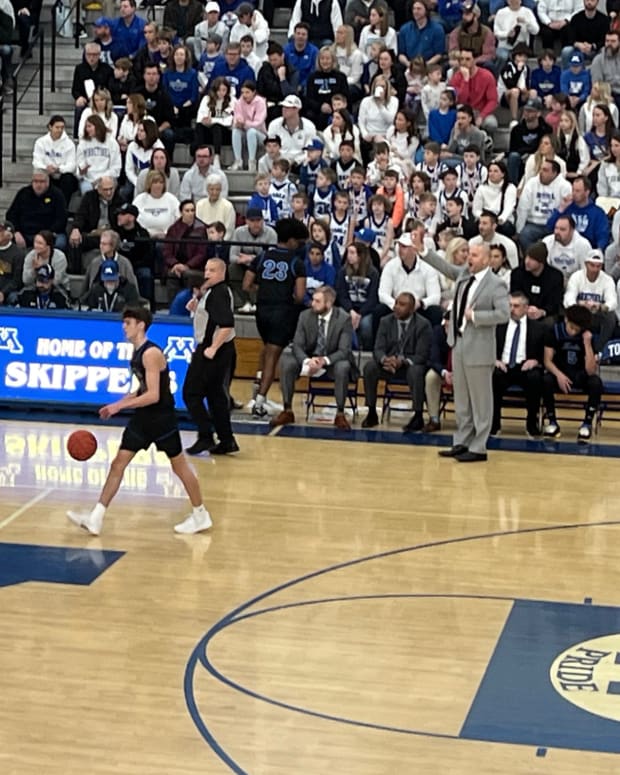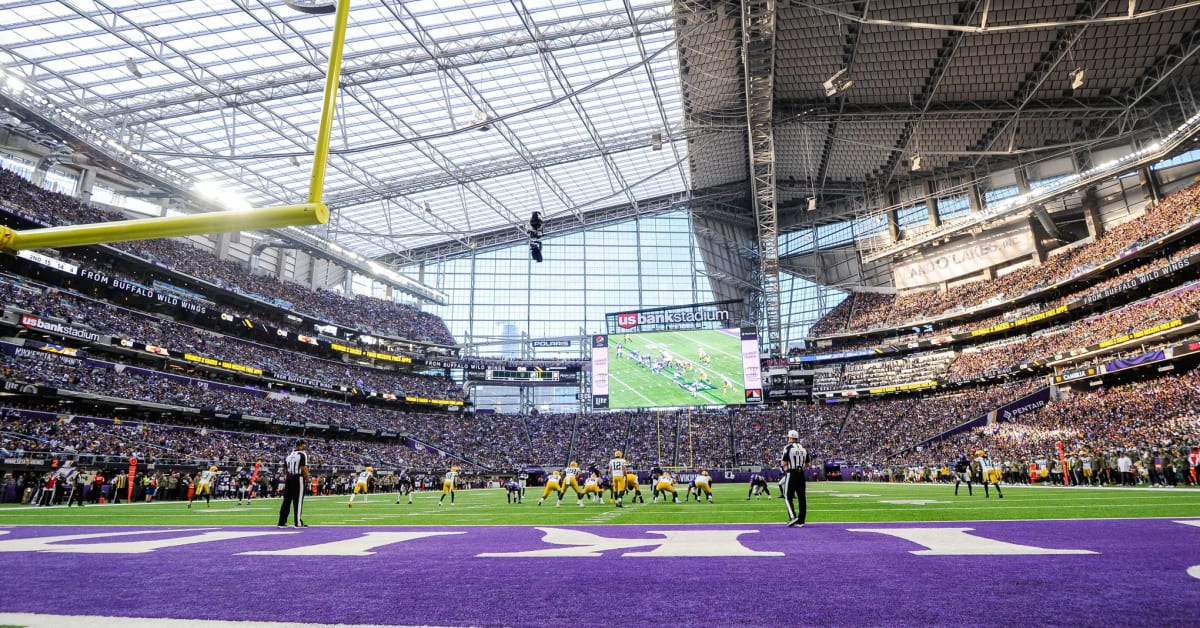
SKOL Searching: Keeping the status quo is the Vikings' riskiest path forward
An NFL general manager’s first goal every year is not to win the Super Bowl. It’s to keep their job.
Job preservation drives an alarming amount of everyday decisions in front offices – and it’s one reason why many teams refuse to bottom out. Put yourself in that decision-maker's shoes and it makes sense. If the roster is bad enough to warrant a rebuild, why should the general manager that oversaw its demise get another chance to build it from scratch?
That’s not the situation Kwesi Adofo-Mensah finds himself in. Nearly all of the reasons why the Minnesota Vikings might consider a rebuild are from sins committed by the previous regime. Kirk Cousins’ contract was designed explicitly to force Minnesota into frequent restructures that maximize his immediate value and hamstring the team long-term. The Vikings’ defense ranked third in the NFL in snap-weighted age rankings last season as veterans were almost always extended and young players were denied development opportunities. And the rookies that were given a chance hardly lived up to their expectations.
That’s what led to Adofo-Mensah’s hiring – and it’s unknown whether he was given the latitude to reverse many of those decisions or was given the directive to keep pushing forward. Nearly every veteran was retained, Za’Darius Smith was added and the Vikings pushed forward into the front lines with the same strategy that got the last regime booted from the job.
If that was the case, a 13-win season Adofo-Mensah should buy him some leeway and flexibility to manipulate the roster as he sees fit. But will he do it?
Often these decisions come down to risk, specifically which option is more risk-averse. Rebuilding is often considered the riskier option, sacrificing the known quantities on the current team and banking on “what could be in the future.”
Minnesota’s situation is the opposite. The bigger risk isn’t blowing it up, it’s bringing the band back together and expecting different, better results. Here’s why.
Kwesi’s window
Much was made about the length of Adofo-Mensah’s contract when he was hired. These details don’t often get out, but it was reported the Vikings signed him to just a four-year deal, which is shorter than most general manager contracts.
That meant Adofo-Mensah’s clock to prove himself started immediately. There was no patience for trial and error or first-time general manager mistakes. The contract signaled ownership wanted to see immediate results. In the event Minnesota pushes for contention again in 2024, that only ratchets up the pressure. If the Vikings were to fall short in 2024, which seems inevitable given its roster, would Adofo-Mensah want to rebuild then with just two seasons left on his contract?
That would give him nearly no time to roll out his plans for a rebuild and further complicate the dynamic. Adofo-Mensah would be inclined to contend once more and find himself back in the cycle that cost Rick Spielman his job.
If there’s ever going to be a time to rebuild, Adofo-Mensah is incentivized to do it now while he has goodwill built up and a full three years to prove it's the right direction. Waiting longer only risks a perpetual state of mediocrity or a front office that becomes too desperate and makes irrational decisions.
Cousins’ contract and potential cliff
The Vikings could conceivably keep Cousins on the final year of his deal and play out the season for one last chance of contention. Then if it doesn’t pan out, move on. That would allow Minnesota to lay the groundwork of a rebuild and fully lean into it after next season. However, that ignores the serious cap strain that would put the team in the immediacy and the interpersonal dynamics between Cousins and the front office.
Cousins is incentivized to look for a longer-term deal and use his leverage if he doesn’t get one.
That leaves extending Cousins as the only real option to contending in 2023. If Minnesota does that it cements that they will not be rebuilding anytime soon. Cousins has proven his teams have a floor of winning, never finishing worse than 7-9 in a season as a starter.
Extending him to a long-term deal also opens up plenty of risk for an eventual performance dip to significantly hurt the team. As the Broncos are finding out with Russell Wilson and teams that have employed both Carson Wentz and Matt Ryan, paying a declining quarterback top dollar is amongst one of the most crippling things you can do to a franchise.
Cousins has not shown many warning signs of that potential drop-off, but quarterbacks rarely do give consistent signs. Often it just happens. Assuming Aaron Rodgers does return next season, Cousins will be the second-oldest starting quarterback in the league. Betting against history has worked when it's the likes of Rodgers and Tom Brady. Betting Cousins can keep the same level of consistency into his late 30s and early 40s is a whole different proposition.
Moving on this offseason, or setting the groundwork for that eventuality a year from now avoids all those possibilities and it doesn’t come at a major performance risk. The Vikings lose the certainty they won’t be the laughingstock of the NFL, but they also cap their ceiling. Minnesota has won one playoff game since Cousins arrived, what evidence points to that changing significantly?
Further stunting the youth
Among the major criticisms toward the end of Mike Zimmer and Rick Spielman’s tenure was the ignoring of young players. Acquiring short-term stopgap veterans became more of a priority than allowing recent draft picks an opportunity to learn and grow.
This has reared its head most notably on defense. When was the last successful defensive draft pick?
Here are the names of the last seven drafts:
Lewis Cine, Andrew Booth, Brian Asamoah, Akayleb Evans, Esezi Otomewo, Chazz Surratt. Patrick Jones II, Camryn Bynum, Janarius Robinson, Jaylen Twyman, Jeff Gladney, Cameron Dantzler, D.J. Wonnum, James Lynch, Troy Dye, Harrison Hand, Josh Metellus, Kenny Willekes, Brian Cole, Cameron Smith, Armon Watts, Marcus Epps, Kris Boyd, Mike Hughes, Jayln Holmes, Ade Aruna, Devante Downs, Jaleel Johnson, Ben Gedeon, Ifeadi Odenigbo, Elijah Lee, Jack Tocho, Mackensie Alexander, Kentrell Brothers, Stephen Weatherly, Jayron Kearse.
Only Dantzler and Bynum started a majority of games for Minnesota last year. Some of that is bad drafting. Hughes turned out to be a first-round failure. As did middle-round picks Holmes, Johnson and Surratt.
However, a majority of these players failed to see any meaningful snaps. Kearse was let go and found success elsewhere. As did Hughes and Epps. Minnesota has an intriguing batch of second-year players. Asamoah showed signs as a rookie, as did Evans. Cine and Booth weren’t healthy enough to form an opinion.
If Minnesota continues to think short-term, another year of defensive draft picks will likely take a back seat to veterans that are retained and signed in free agency.
No team can win the Super Bowl without homegrown success stories. The Chiefs and Eagles exemplified that. However, even as both teams pushed their chips in to contend, they gave space for youth to develop. That has not happened in Minnesota. Until it does, success will be limited.
